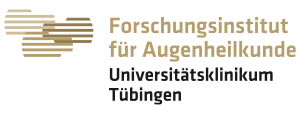The involved laboratories are associated with the University (Faculty of Science, Medical Faculty), two joint research centres between faculties (Werner Reichardt Centre for Integrative Neuroscience (CIN) and Bernstein Centre of computational neuroscience (BCCN)), the Max Planck Institute for Intelligent Systems, the Natural and medical Science Institute (NMI), the Center of advanced European Studies and Research (CAESAR) and the Department of Biology II of the Ludwigs-Maximilian-University Munich.
The CRC also includes several groups from the Institute for Ophthalmic Research (Dr. Philipp Berens, Prof. Thomas Euler, Prof. Frank Schaeffel, Dr. Siegfried Wahl and Prof. Eberhart Zrenner).
Human visual perception is amazingly robust: Even in highly variable environments, we are able to make reliable inferences about the spatial arrangement of the world from limited visual information.
"To achieve this, our brain must perform complex computations," says Professor Matthias Bethge, Head of the Bernstein Centre for Computational Neuroscience at the University of Tübingen (Centre for Integrative Neuroscience / Institute for Theoretical Physics) and spokesperson of the CRC.
Artificial vision systems, in turn - as used, for example, in self-driving cars - are making steep progress in reproducing the visual skills of humans. The scientists of this new collaborative research centre will combine neuroscience and machine learning approaches to achieve a better understanding of the principles and algorithms that enable robust visual inference, both in humans and machines. They will also explore how this knowledge can be exploited in a clinical setting.
Contact details:
Prof. Dr. Matthias Bethge
University of Tübingen
Centre for Integrative Neuroscience / Institute for Theoretical Physics
Phone: +49 7071 29 89017
E-mail: matthias.bethge@uni-tuebingen.de




